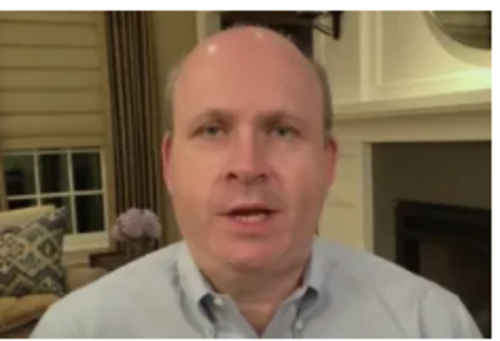via jonathanturley.org
The firm of former Clinton campaign general counsel Marc Elias has lost another election case in a spectacular fashion. The Chief Judge of the Western District of Wisconsin, James Peterson (an Obama appointee), did not just reject but ridiculed the Elias Law Group challenge to a witness requirement for absentee voting. Elias has been previously sanctioned in court and accused of lying in the Steele dossier scandal by journalists and others.
U.S. District Judge James Peterson ruled against the lawsuit brought by the Elias Law Group, arguing that the witness requirement violated the Voting Rights Act of 1965 and Civil Rights Act of 1964.
The state statute under § 6.87(2) describes what the witness must certify. The statute first sets forth in two sentences what the voter must certify on the ballot envelope. The first requirement concerns the voter certifying that he or she meets the requirements for voting generally and for voting absentee in Wisconsin.
The second requirement is certification that the voter followed the process for preparing the absentee ballot. These are the called the “first voter certification” and the “witness certification.”
The witness certification refers to a witness certifying “all of the above,” which is obviously referring to the language on preparing the absentee ballot.
Elias argued that it requires certification of everything that preceded it on the details of the voter’s record etc.
In the court’s opinion, Judge Peterson expresses disbelief at the lunacy of the Elias argument, writing:
“Normally, the court would begin by searching for other textual clues in the statute. But in this case, the most obvious problem with plaintiffs’ interpretation is that it simply does not make any sense.”
The court then notes that:
“Under plaintiffs’ interpretation, every witness would have to determine the voter’s age, residence, citizenship, criminal history, whether the voter is unable or unwilling to vote in person, whether the voter has voted at another location or is planning to do so, whether the voter is capable of understanding the objective of the voting process, whether the voter is under a guardianship, and, if so, whether a court has determined that the voter is competent. See Wis. Stat. §§ 6.02 and 6.03. Many witnesses would be unable to independently verify much of the required information. The statute allows any adult U.S. citizen to serve as a witness, suggesting that a wide variety of people should be able to do the job…It makes no sense to interpret § 6.87 in a way that would make compliance virtually impossible.
If plaintiffs’ interpretation were correct, it would mean that countless absentee ballots over decades were invalid because the witness certified that the voter was qualified to vote and met the other requirements in the first voter certification, even though the witness had no basis for such a certification.”
However, it gets even wackier. They argued that a simple witness requirement constituted a type of illegal vouching under the Voting Rights Act. This is a reference to the Jim Crow era when a registered voter had to vouch for a new voter, a system meant to prevent African Americans from voting.

